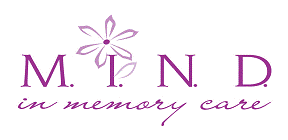|


Moving In Nurturing Directions
in Memory Care
|
Dementia Information
Thursday, April 15, 2010
PREDICTING ALZHEIMER'S DISEASE MAY NOW BE EASIER & CHEAPER THAN EVER
One of the local guys here at Penn State University, associate professor of psychology, Michael Wenger along with researchers at Mayo Clinic College of Medicine have developed a low-cost method of assessing shrinkage in the hippocampal areas. Currently, the best way to assess the size of the hippocampus (where our short-term memories go to be stored/sorted into long-term memories, and is also important in spatial navigation) is with MRI (magnetic resonance imaging) testing. As you can imagine, using MRI simply to detect changes in the hippocampus is quite cost prohibitive and not easily available to many people. These researchers got together and combined engineering , statistics and psychology to come up with a way to measure how long it takes a subject to recall objects during a test called FCSRT (Free & Cued Selective Reminding Test). This looks at something called "hazard function" which is an engineering term, and gives them probabilities that a task not yet completed will be done in the next interval of time. This study was specifically looking at people who were diagnosed with MCI or mild cognitive impairment and they were able to track progression of the MCI. This could mean a very low-cost method of diagnosing Alzheimer's disease in the earliest stages. The researchers say these results are still preliminary but are very encouraged by the fact that during their testing, the results were confirmed by MRI. They plan to continue with their study of this method looking at mental impairments related to other deficiencies as well. The National Institute on Aging provided funding for this project.
In my opinion, this is exciting news because any time you can give a person with a diagnosis of Alzheimer's (and their families) more time to prepare for the future, the better off they will all be. Education is key and you can't make your wishes known if your don't know your diagnosis.
Archives
December 2005
January 2006
May 2006
June 2006
August 2006
November 2006
February 2007
November 2007
May 2008
March 2010
April 2010
May 2010
June 2010
March 2011
April 2011
May 2011
June 2011
July 2011
August 2011
October 2011
November 2011
December 2011


Cindy Keith, RN, BS,
Certified Dementia Practitioner
Nationally Known Speaker
On Dementia and Alzheimer's Care
Phone 814-235-0691
Fax 814-235-0695
Email:
keithc@mindinmemorycare.com
www.mindinmemorycare.com
|
|


